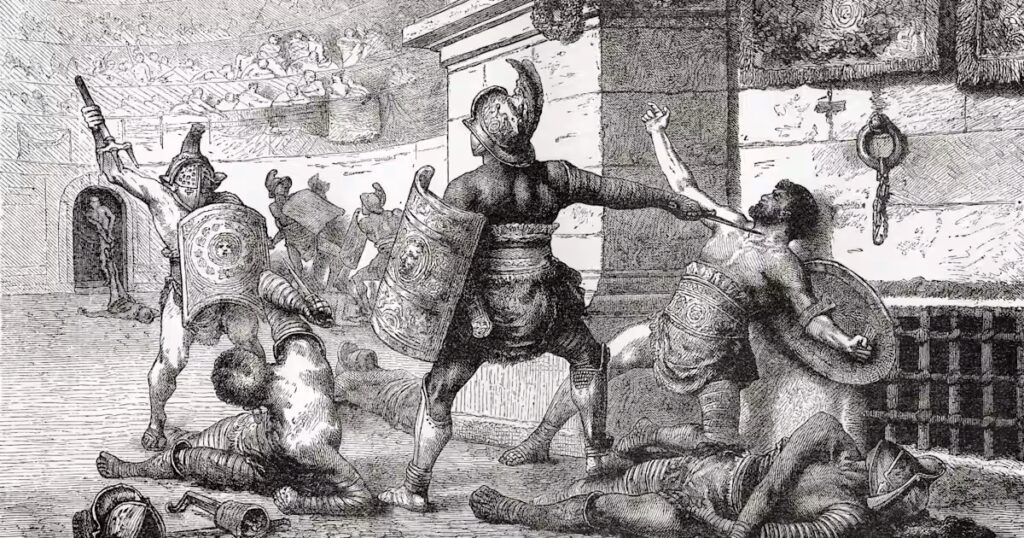The Origins of Sports Betting: A Journey from Ancient Arenas to Predictive Platforms

When we think of sports betting today, we imagine online platforms, odds calculators, and global tournaments. But the roots of wagering go far deeper stretching back to the sands of Roman coliseums and the marble tracks of Olympia. In ancient times, betting wasn’t just entertainment. It was a communal ritual, a test of intuition and social status, and a reflection of public passion. This article explores how early forms of sports betting evolved in ancient societies and how their legacy is mirrored in today’s modern systems.
Wagering Among Gladiators and the Roman Public
The Roman Empire was a spectacle-driven society, and nowhere was that more evident than in the gladiator games. As thousands flocked to the Colosseum, citizens placed bets on who would emerge victorious or survive at all. It wasn’t formalized in the way modern systems are, but the practice was so widespread that politicians and merchants often used betting circles to gain influence.
Betting here was about more than money. It was about honor, allegiance, and sometimes rebellion. The “betting slips” were verbal agreements, and fortunes could be won or lost in a single afternoon. Some even wagered slaves, land, or military appointments. This phenomenon is explored in depth in Gladiators, Games, and Gold: The History of Wagering in Ancient Sports.
Ancient Greece and the Olympics: The First Organized Odds?
In Greece, where the Olympic Games were born, betting on athletes was less open but still deeply embedded in the culture. Prominent families and cities sponsored athletes, and behind closed doors, they placed substantial bets. The winner didn’t just bring glory — they triggered a network of financial exchanges, debt collections, and renewed rivalries.
Interestingly, Greek society tied betting to philosophy and mathematics. Pythagoreans were known to analyze previous match outcomes, attempting to “calculate” likely winners. If this sounds familiar, it’s because modern prediction models operate on similar principles. Fans today do much the same when following 손흥민중계
, where statistics, past performances, and probabilities shape expectations of the next decisive moment. This evolution of predictive games and their cultural impact can be seen in From Totocalcio to Toto: How Predictive Games Shaped Sports Culture.
Rituals, Belief Systems, and the Role of Fate
In both Rome and Greece, religious belief often intertwined with wagering. Oracles were consulted. Favor from the gods was a “factor” in determining the likely victor. In a way, these ancient bettors believed they were not gambling but foreseeing fate. It parallels the faith some modern bettors place in algorithmic models or “insider stats.”
Similarly, in modern times, sports passion often borders on the spiritual. Football, in particular, has become a cultural ritual with deep roots in history and community as detailed in From Pelé to Haaland: A Timeline of Football Passion and Prediction.
From History to Modern Parallels
While today’s platforms are regulated, digitized, and accessible worldwide, the core psychology remains unchanged. People bet because they care, they’re invested, and they want to prove their insight. Ancient societies did the same with fewer tools, but just as much intensity.
Basketball has also seen this transformation globally, evolving from casual courtside bets to international regulatory systems. Learn more about that transition in Courtside Bets and International Hoops: The Global History of Basketball Wagering.
If you’re interested in how predictive systems have evolved into safe, data driven experiences, explore this modern index of reliable platforms, where informed decisions replace blind guessing.
Conclusion
The story of sports betting is not a recent phenomenon. It’s a timeless expression of human curiosity, competition, and belief. From ancient Rome to your browser tab, the urge to predict and win has stayed remarkably consistent. For a comparative look at how these traditions transitioned from casual wagers to smart platforms, see Sports Betting Then and Now: From Street Slips to Smart Systems.








